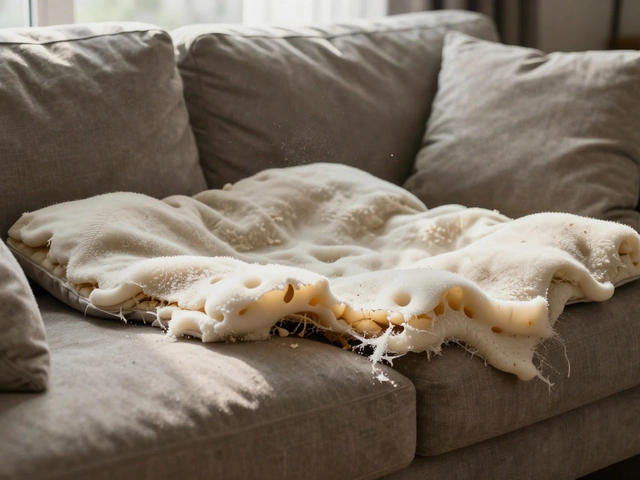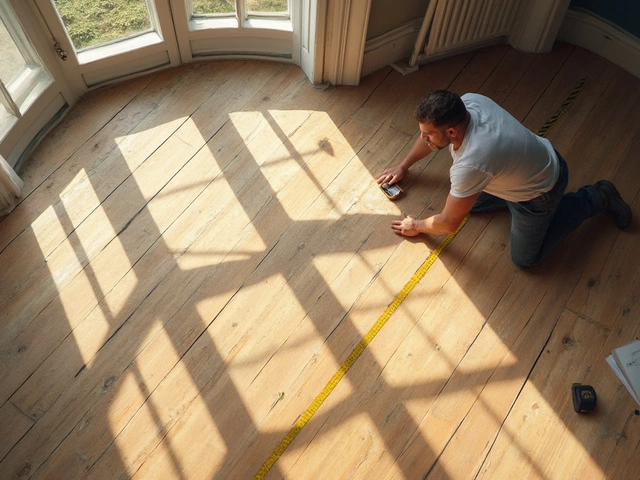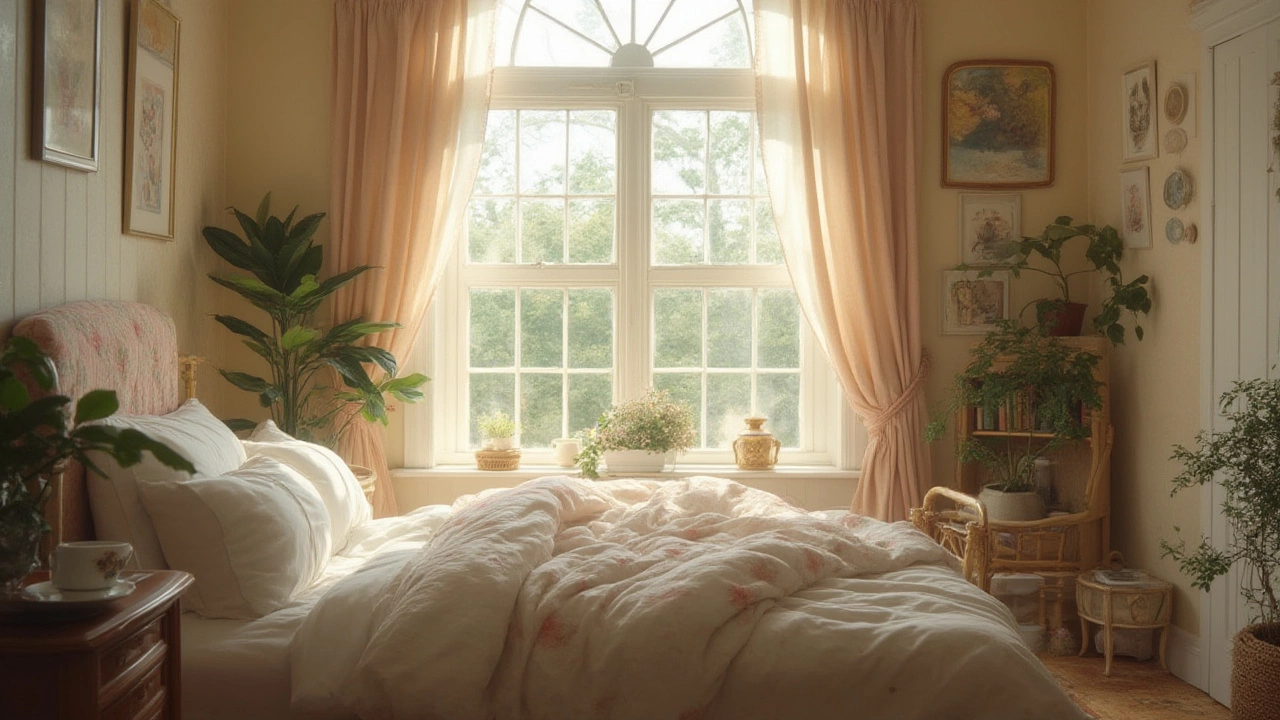
Ever wondered if the direction you face when you sleep actually changes anything? Turns out, there are centuries of ideas, old myths, and even a few scientific nuggets packed into this single bedtime decision. People have always been obsessed with the tiny things that might help them get a better night’s rest—sleep routines, mattress types, blackout curtains, you name it. Yet, hardly anyone talks about how simple bed placement could play a real part. Some folks swear by facing their pillow a certain way, almost religiously adjusting their room until it feels just right. Whether you’re tossing and turning every night or sleep like a log until your alarm, the way your bed is pointed might matter more than you think.
Where Do These Sleeping Direction Beliefs Come From?
Alright, let’s get into the roots. Why do we even talk about which way to face when we snooze? Across the globe, different cultures have strong ideas attached to sleep direction. In India, Vastu Shastra—a kind of ancient architectural science—says the south is the best. They believe pointing your head south aligns you with the Earth’s magnetic field, making sleep easier and healthier. North? Absolutely not. Some Hindu traditions think that sleeping with your head north disturbs your energy, upping stress and possibly leading to bad health. South is considered to attract positive energy, while north supposedly messes with your blood flow because your head (also magnetic) “faces” north too. That’s a bold claim, but millions do arrange their beds just in case.
Step over to China, and now we’re talking Feng Shui. Feng Shui isn’t just about furniture placement; it’s about harnessing good energy, called "qi." Here, where your bed faces determines how that energy flows. North is linked to water, stillness, and rest—sounds good, right? But south means fame and recognition, so some folks tilt their beds that way for ambition. West is for creativity, east for family and health. The advice? Don’t point your feet straight at the door—believed to be a "coffin position"—as it’s inauspicious. Every culture peppers in its own rules—some homes in rural Japan place beds so you wake facing east, mimicking the sunrise for a fresh mind. There’s not much hard proof for any of this, but the traditions stick because they help people feel safer and more centered.
Here in New Zealand, and in most Western countries, we don’t see many mainstream rules about sleep direction. But even here, a lot of new homes borrow from Feng Shui or Vastu guides—should you avoid windows behind your head? Where’s the door? Suddenly, old ideas sneak into new builds. There have even been studies in Australia and Europe suggesting people subconsciously prefer beds facing a door or a window, probably for a sense of control and safety. It might sound ancient or superstitious, but these bedroom traditions travel well across time and place.
What Does Science Actually Say About Sleep Direction?
Let’s put the myths up against what science has to say. It turns out, there have been a few studies—not heaps, but enough to raise an eyebrow. A team from the All India Institute of Medical Sciences (2021) ran a sleep trial with volunteers facing different directions. According to their data, those sleeping with heads to the south had a lower heart rate and reported fewer sleep disturbances than the north-facing group. That’s interesting, but the sample was relatively small—so, take it with a grain of salt. Still, tiny studies like that crop up every so often and make the rounds online.
Researchers have also looked at the idea of geomagnetic fields. The human body does have tiny amounts of electrical activity—your heart and brain are both active this way. Some sleep scientists have wondered: could the direction really have some effect via these fields? So far, there’s no strong evidence to back this up. There isn’t a measurable difference, say, in how well you sleep if your head faces north versus east—at least, not for most people. In New Zealand and Europe, bedroom orientation studies tend to focus on light, noise, and comfort instead of cardinal directions.
What gets more concrete is the effect of how your bed faces relative to your door and windows. Psychologists think bed placement ties into your sense of security. When you can see the doorway from your bed, your mind lets its guard down more at night. That’s called the "command position" in design and has roots in both psychology and Feng Shui. Feeling safe helps you sleep deeper—and sleep quality is easy to measure, with dozens of scientific studies supporting the link between bedroom setup and how restful your night will be.
If you want a hard fact: Australia’s Sleep Health Foundation found that people who spend more time preparing their sleep space (bed, bedroom set-up) report 13% better sleep quality compared to those who don’t. While this isn’t about direction specifically, it points to how much environment matters. The direction your bed faces can shape how calm or exposed you feel, and that translates into real effects on sleep.
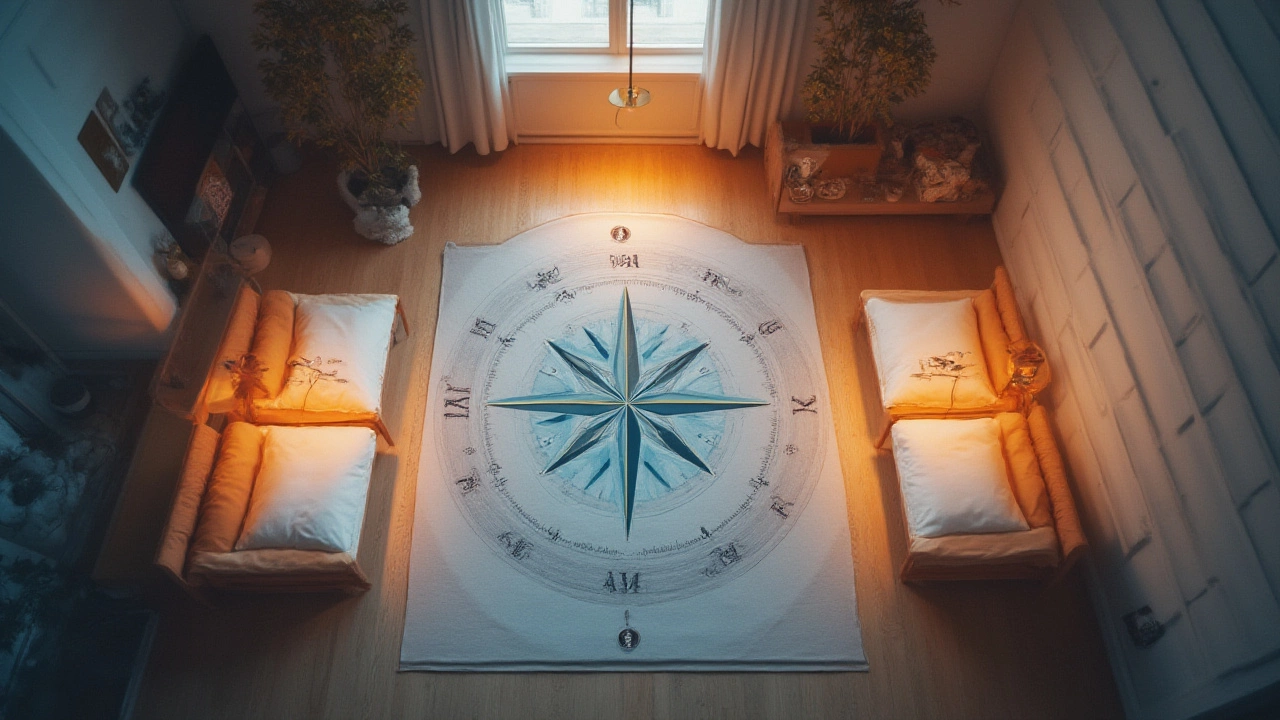
How Direction Affects Sleep Quality: Real Tips That Work
So, what can you actually do to get better sleep using these ideas? First up, let’s look at the big hitters: South-facing beds, according to Vastu, are worth a try—especially if you find yourself waking up tired, even after a reasonably long snooze. If you’re not into tradition, treat it as an experiment: angle your pillow to the south for a week and watch how you feel each morning. Many people in Asia swear by this and won’t compromise on bed orientation when moving house.
Your bed doesn’t live in a vacuum, though. Look around: Is your bed’s headboard up against a solid wall? That makes a difference. Having support behind your head makes you feel more secure—this is as much instinct as design. Here’s a quirky tip: try not to sleep directly beneath a window, as this might make you more jumpy during noisy nights, or cause chills (especially in Auckland winters). Nor should you line your feet up directly with the door—if nothing else, it’s a bit unsettling in the dark.
Got clutter under your bed? Clean it out. Both Feng Shui and common sense agree: You’ll sleep better without unused junk creating stagnant air beneath you. Want more concrete advice? Use blackout curtains to block city lights if you’re in town, and crack the window open a notch for fresh air. A 2019 study from the University of Otago found that people who kept their rooms well ventilated (window at least partly open) had 8% fewer nighttime awakenings.
Your mattress and pillow matter more than anybody wants to admit. No sleep direction can fix a saggy old mattress. And if you live close to busy roads, consider rotating your bed to muffle noise—which often means avoiding a headboard up against the window. Try it for a week and jot down a few notes on your sleep. You might be surprised how just turning your head south or east can feel like flipping a switch.
Common Bed Positioning Mistakes and How to Fix Them
Plenty of people mess up bed placement without even knowing it. One classic mistake: putting your headboard against a window. Sounds romantic, but you’ll wake up colder, with more outdoor noise sneaking in. Another sleepy blunder? Squashing your bed into a cramped corner "just to fit" the room. Unless you’re in a tiny flat and have no option, this often leaves you waking up stiff, and makes the space feel less restful.
- Facing the Door Head-On: Sure, some think it’s dramatic—like watching for intruders. But lying with your feet straight out to the door (the so-called "coffin position") isn’t great for sleep quality. Adjust the angle if you can.
- Headboard-Free Sleeping: If your bed lacks a solid headboard, you might feel less secure at night—without quite knowing why. A sturdy board against the wall changes that.
- Ignoring Windows: Beds right under windows catch more noise, light, and even drafts. You’re more likely to wake up from cars, possums, or the 4am sun in summer.
- Too Close to Heaters or Air Con: Sleeping too close messes with quality—either over-heating or drying you out. Find where the air flows and avoid it blasting directly onto you.
Want to get tactical? Grab a compass or use your phone’s map app for cardinal points. Rearrange your bed so it faces south or east if you want to give tradition a shot, or at least make sure you’re not cornered, trapped, or staring feet-first at the door. Treat it like a science project: tweak, test, jot down how you feel. Give it a week or two. If you don’t notice a difference, hey, you can always go back.
Here’s a quick glance at things that matter for most sleepers, according to both tradition and research:
| Direction | Tradition | Reported Benefits |
|---|---|---|
| South | Vastu (India) | Calm, deeper sleep, steady energy |
| East | Feng Shui, Japanese | Feeling refreshed, positive mood |
| North | Vastu (avoid) | Restlessness, disturbing sleep |
| West | Feng Shui | Creativity, relaxation |
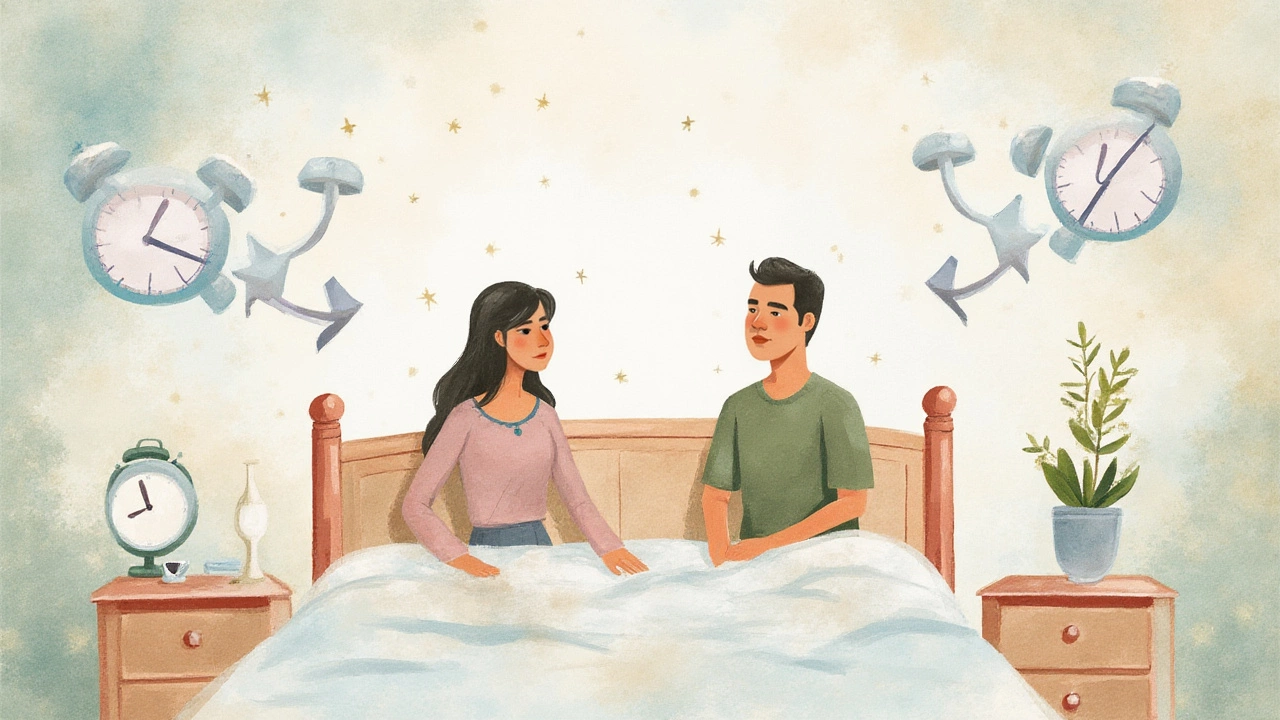
Finding Your Perfect Sleep Setup: What Really Works?
If you’re aiming for the best way to sleep, don’t overthink the compass, but don’t ignore it either. Take into account how you feel each morning more than what any ancient text says. Are you waking up groggy or alert? Do you toss and turn all night, or knock out as soon as your head hits the pillow? A lot of New Zealanders live in older homes, with funky room layouts where bed direction won’t always match old-school rules—which is fine. Make practical choices first, then tweak for comfort and vibe.
Where you sleep influences lots more than shut-eye. If the room is too hot, too cold, or especially bright, no amount of south-or-east facing beds can help. Sound actually matters more—city traffic, birds at sunrise, or flatmate noise can all impact your cycle. If your bed points at a noisy window, flipping it even 90 degrees sometimes works wonders. Think about how you sleep, too: do you sprawl, curl up, or barely move? Your sleep habits should guide the size and spot of your bed.
Don’t forget the human factor. Bedroom layout is pretty personal. Some people love facing out over a beautiful view; others feel better with their back protected by a wall. Most folks sleep best where they feel most at home. According to a 2022 British sleep survey, 68% of participants said that changing their bedroom layout (not even specifically bed direction!) led to noticeable improvements in both sleep and mood.
If nothing else, treat bed direction as one part of a bigger sleep plan. Lock in quiet, darkness, and a cozy spot. Clean out clutter, plug in a white-noise machine if the city is loud, and don’t be afraid to switch things up every so often. After all, your bedroom shouldn’t just look good—it should feel good, too. Down here in Auckland, where the days start bright and the wind howls through all winter, every little change counts. Bed direction probably won’t save your sleep alone, but get it right and it just might make those dreams come easier.



